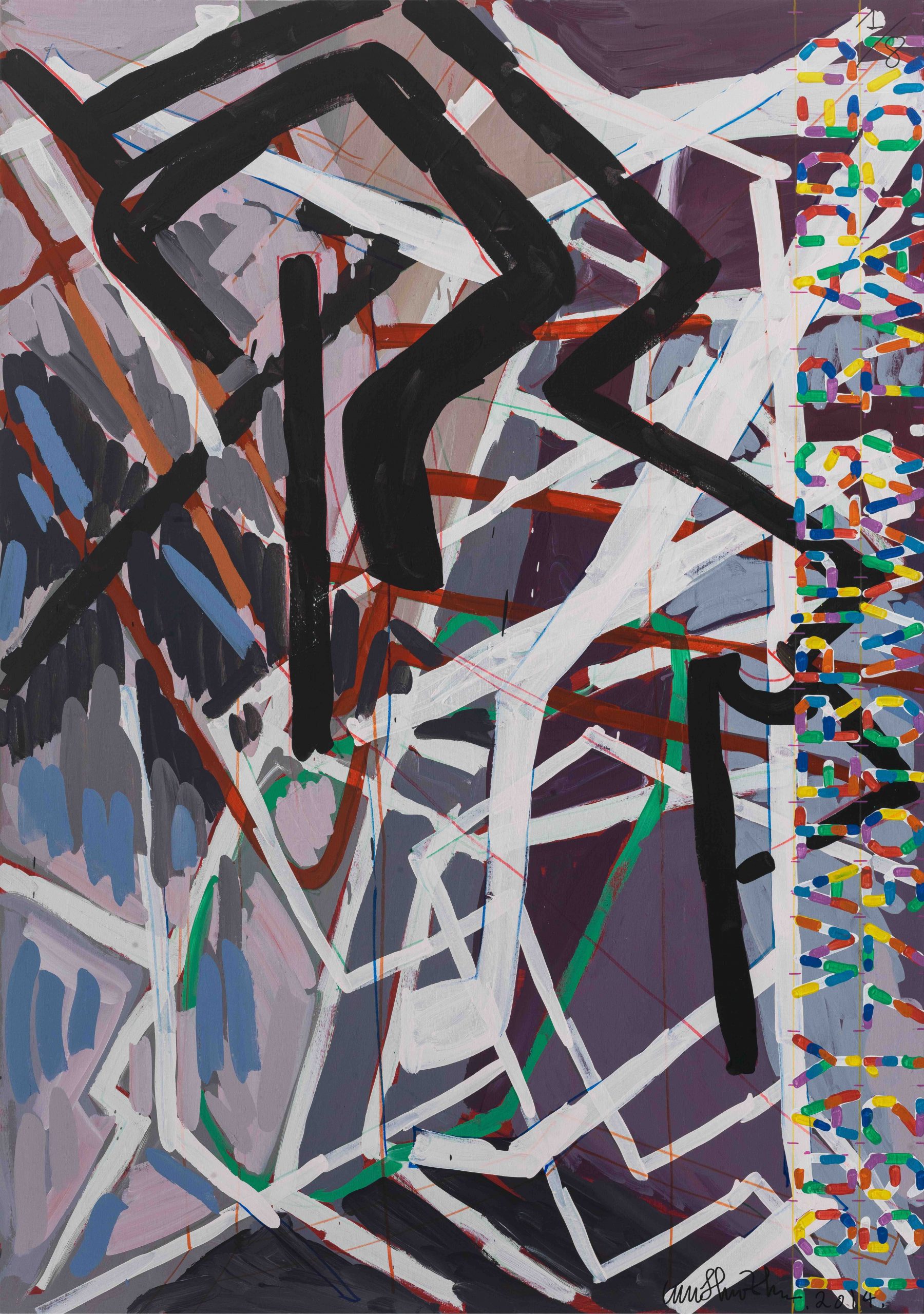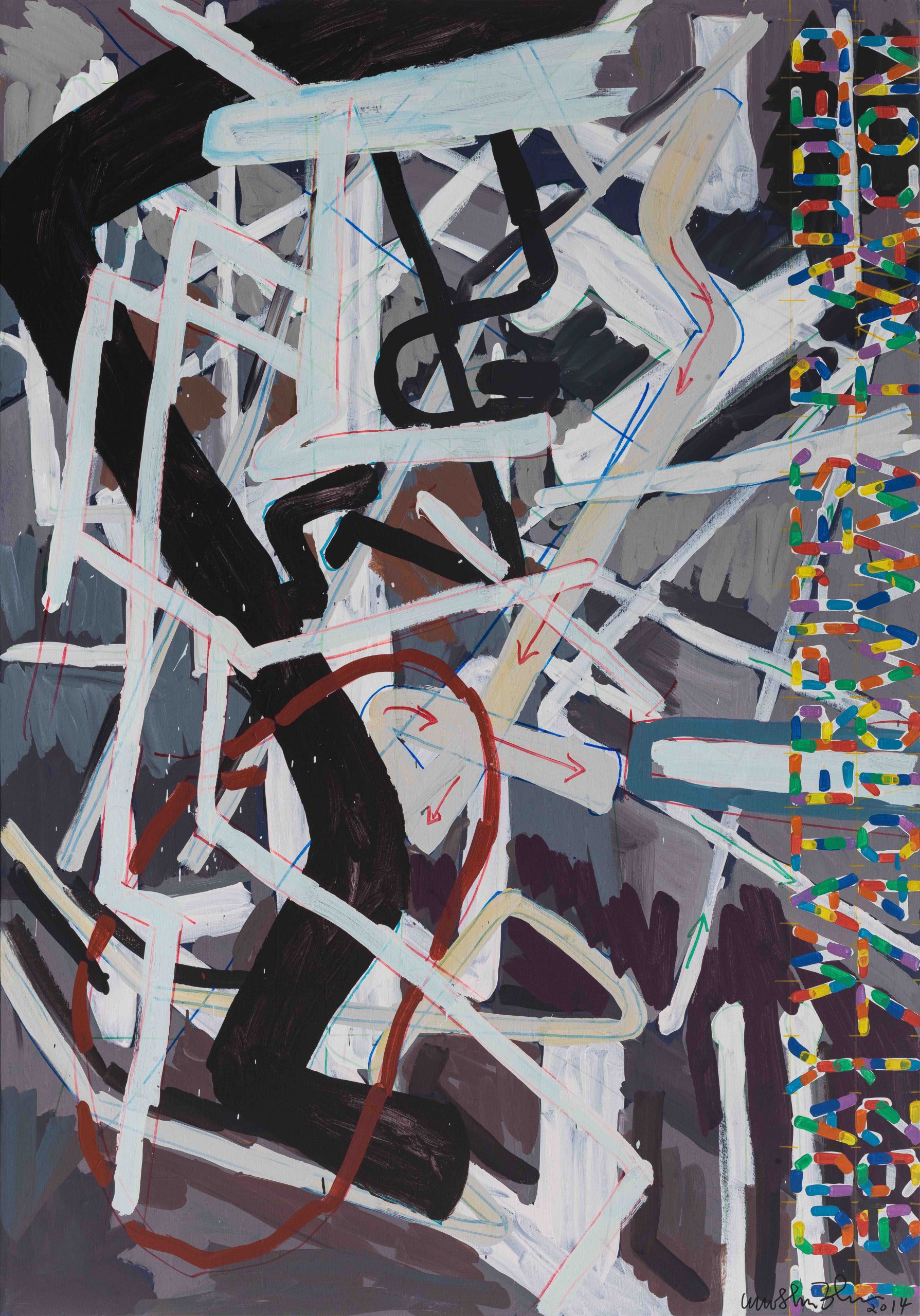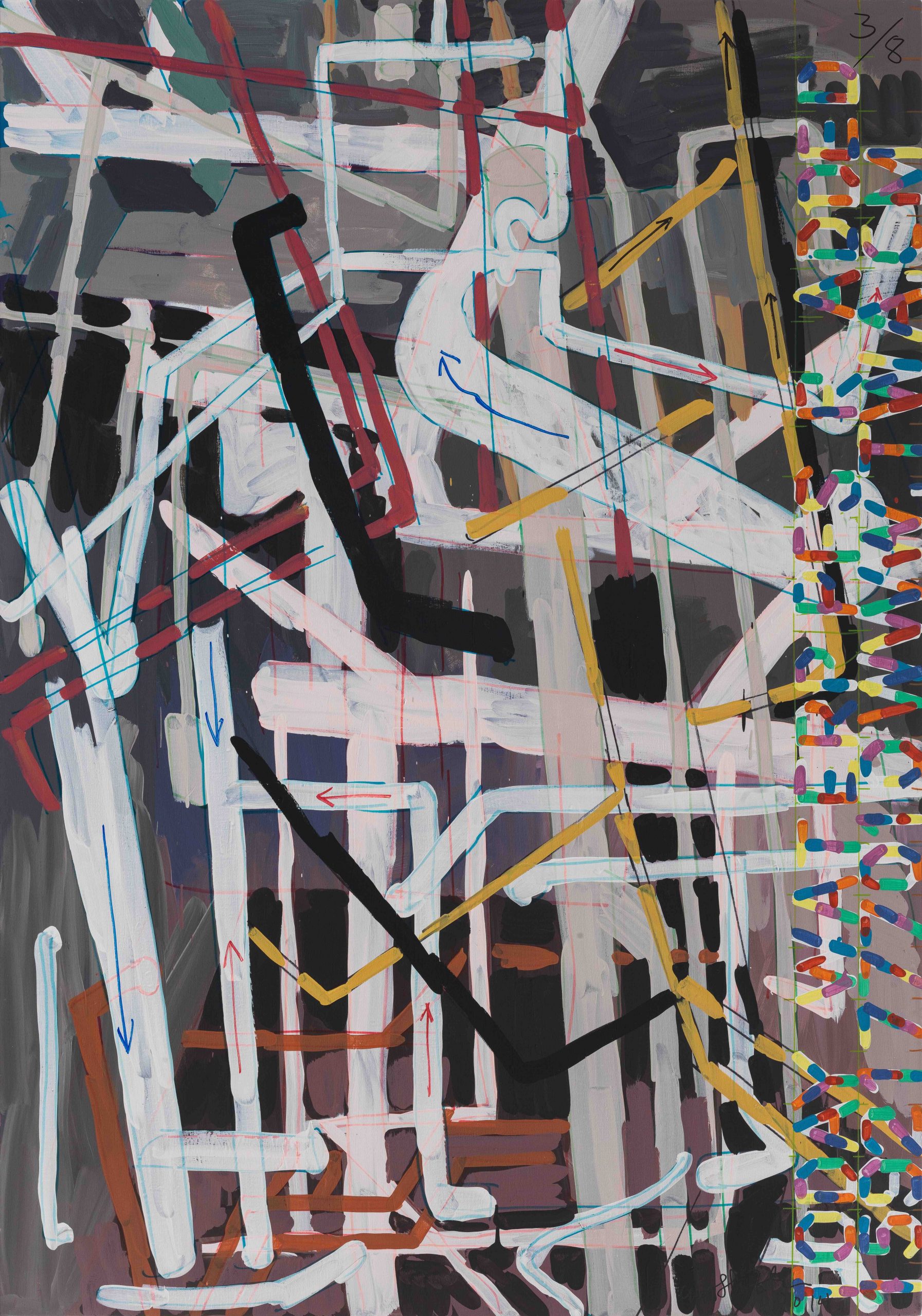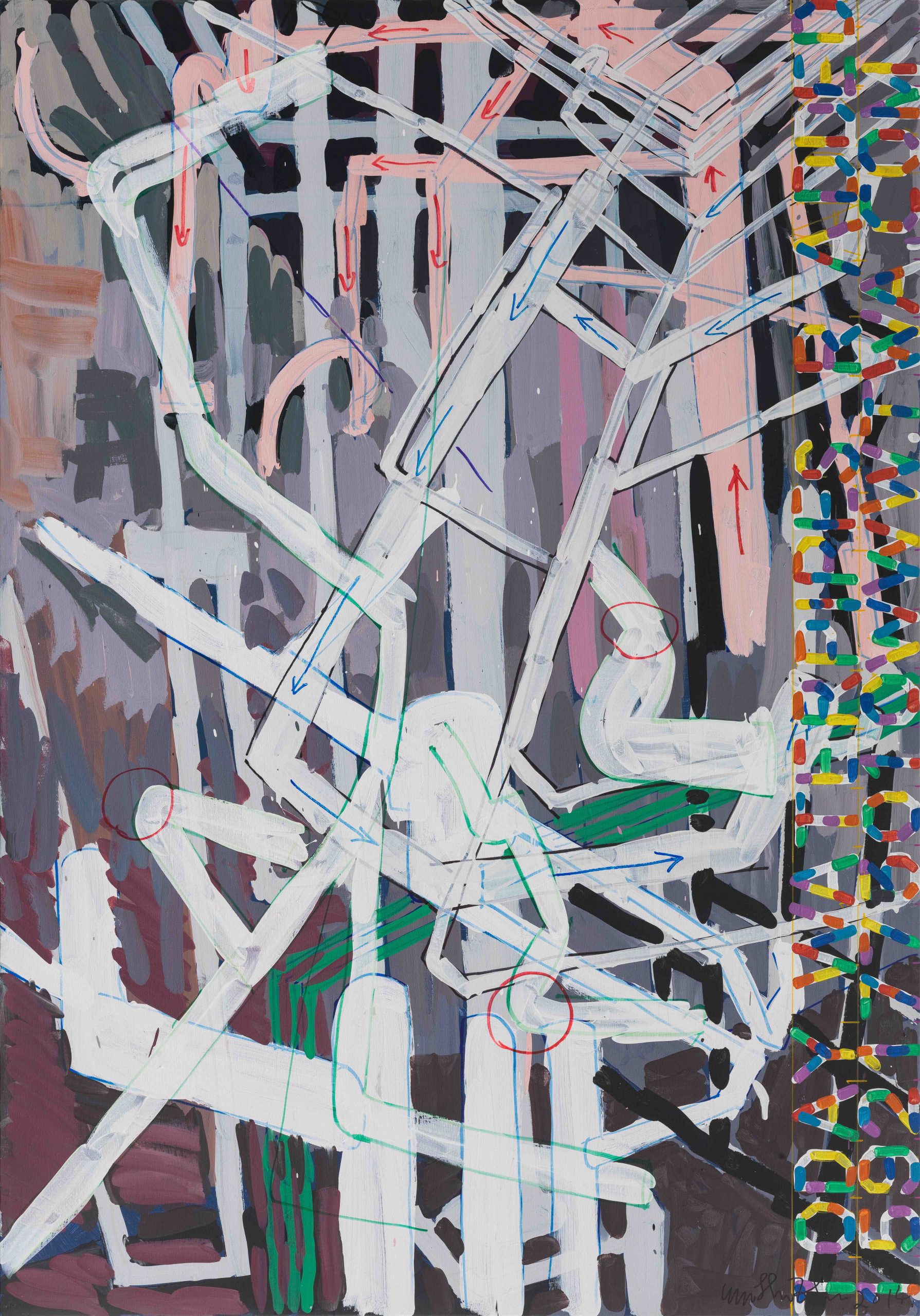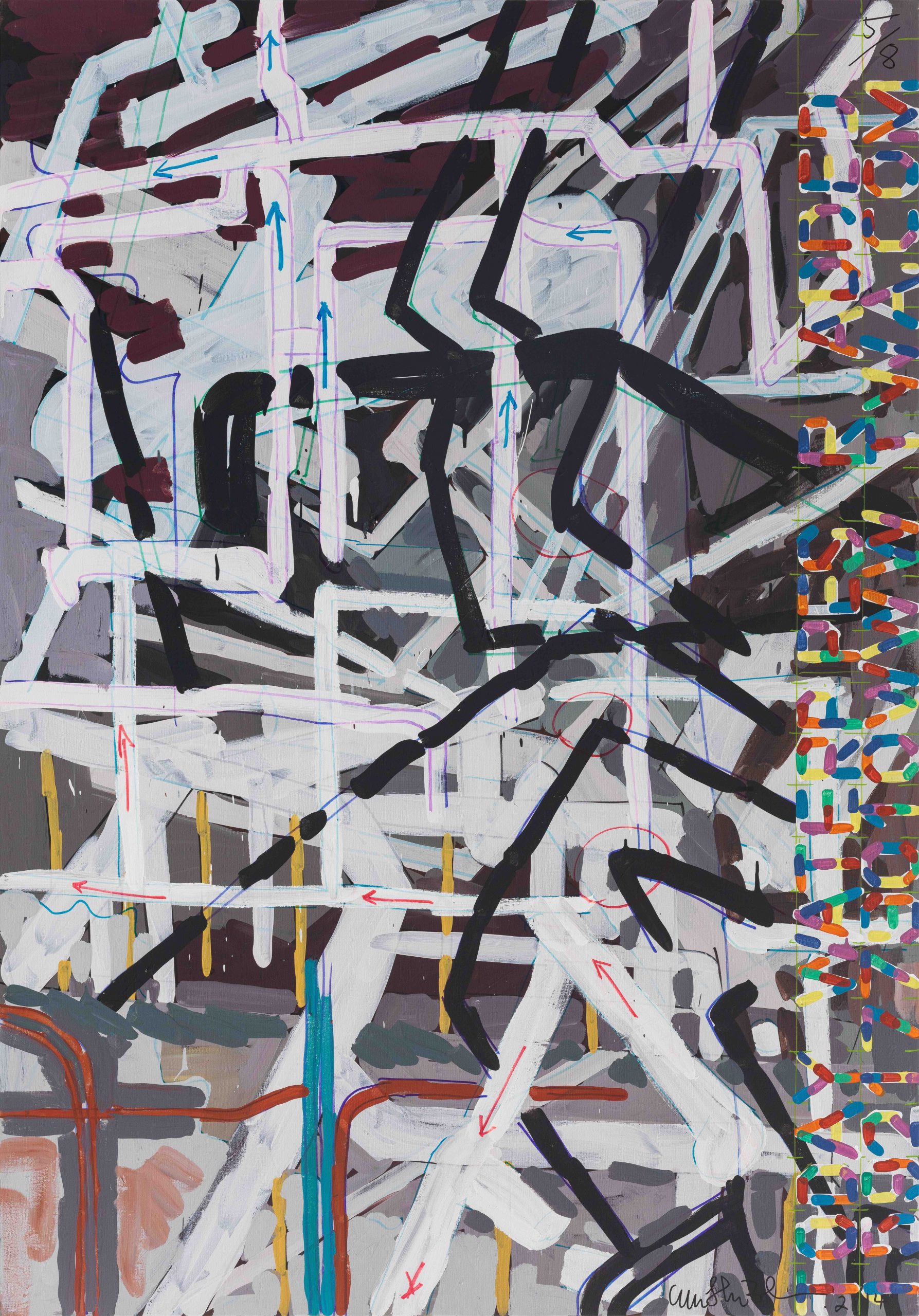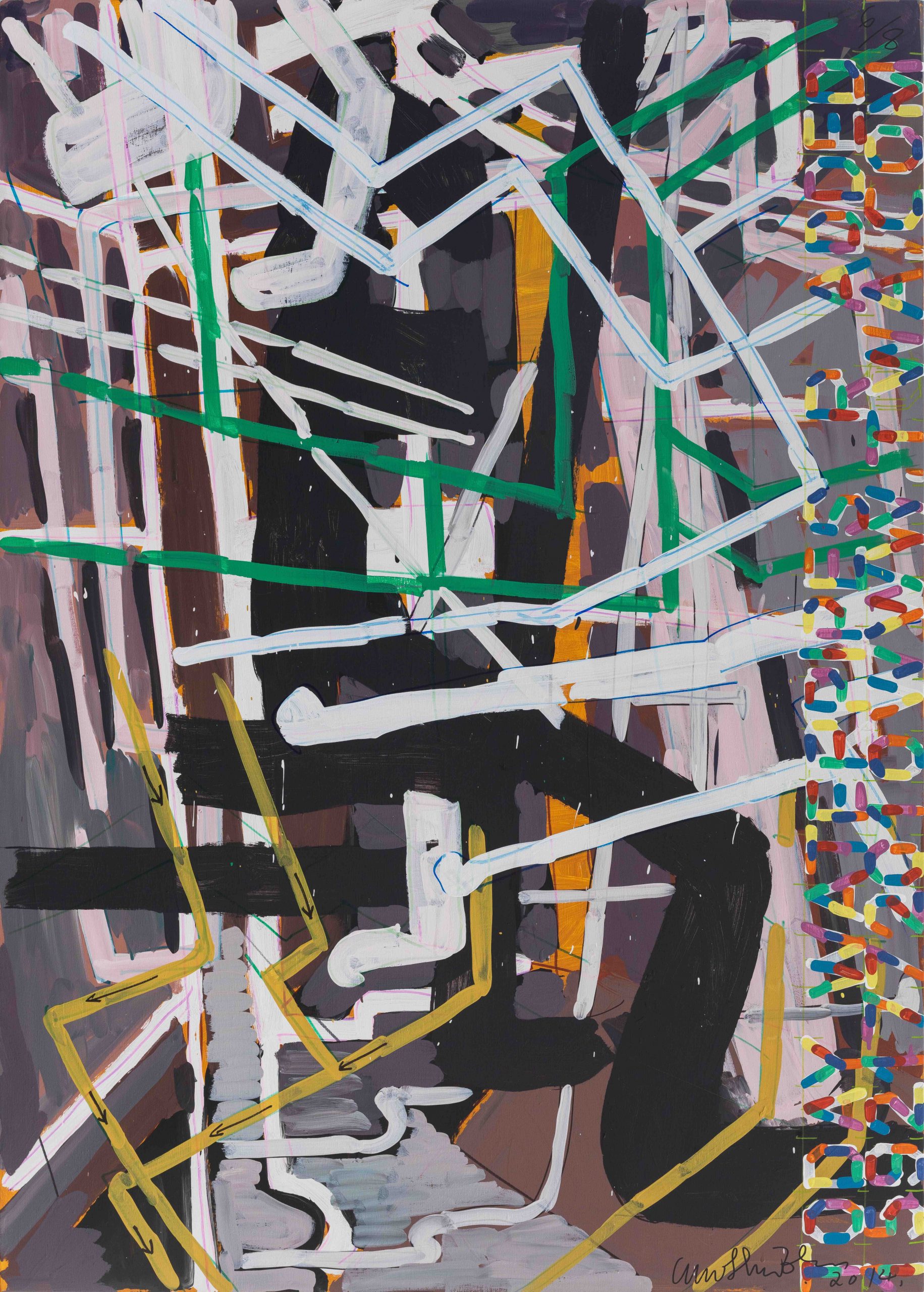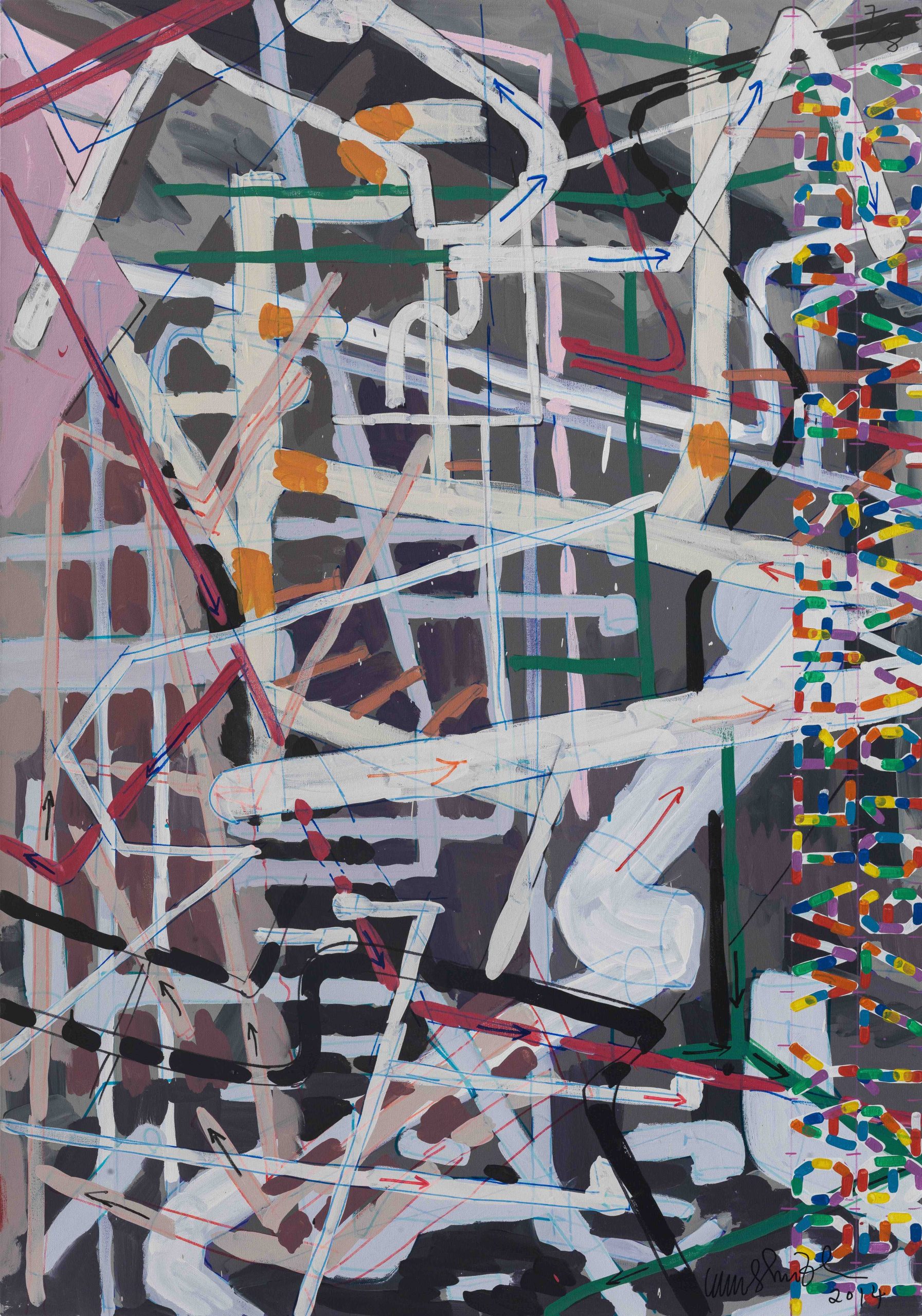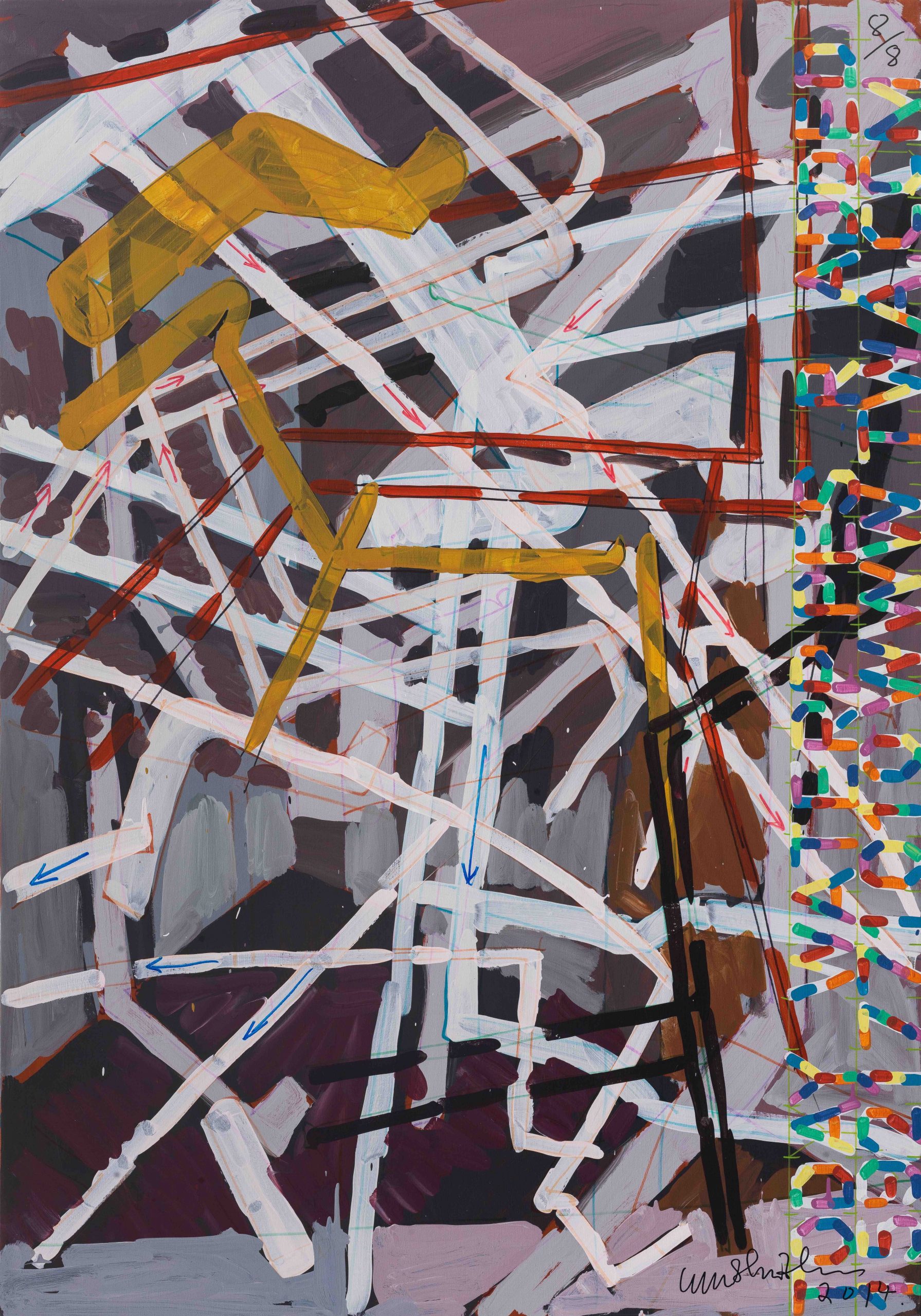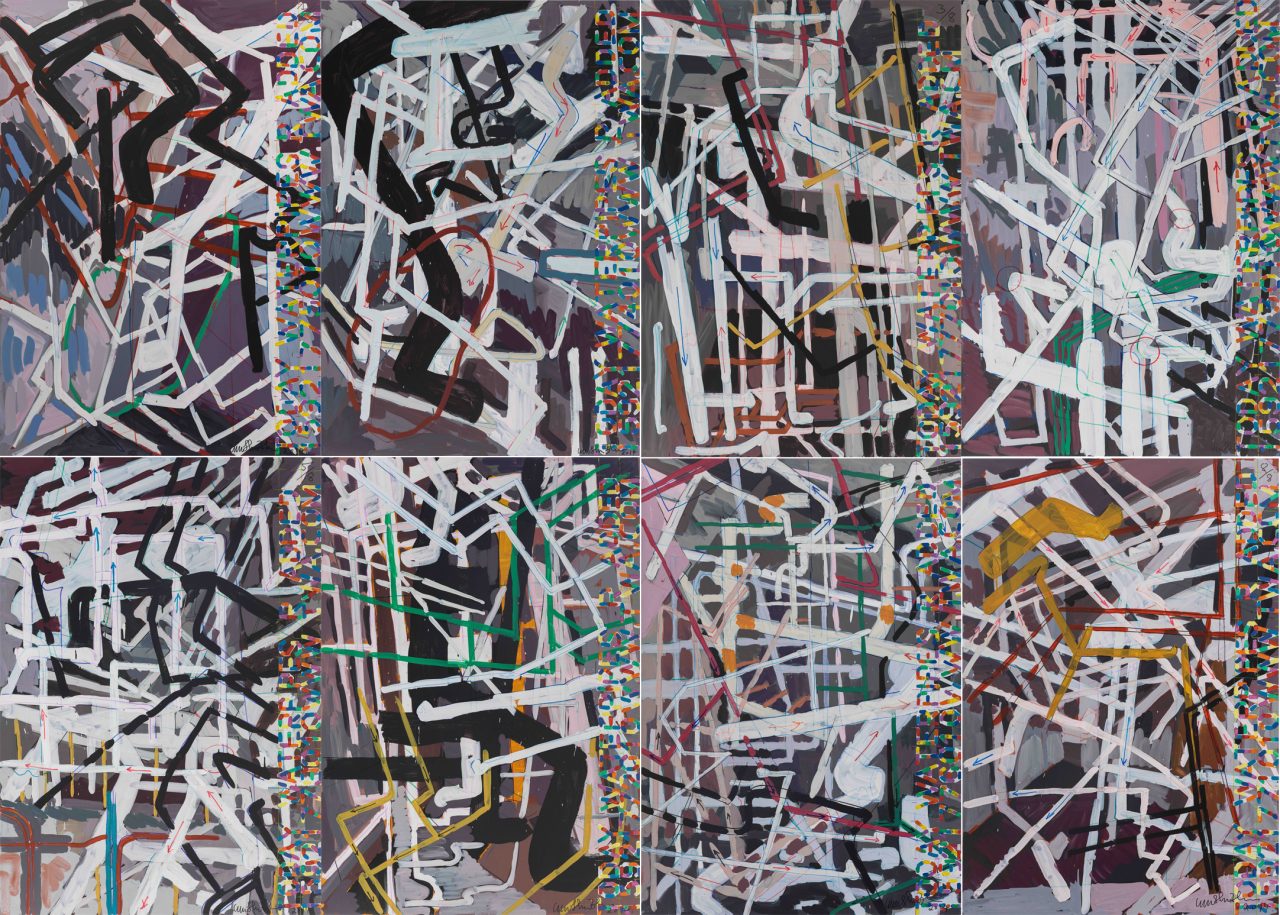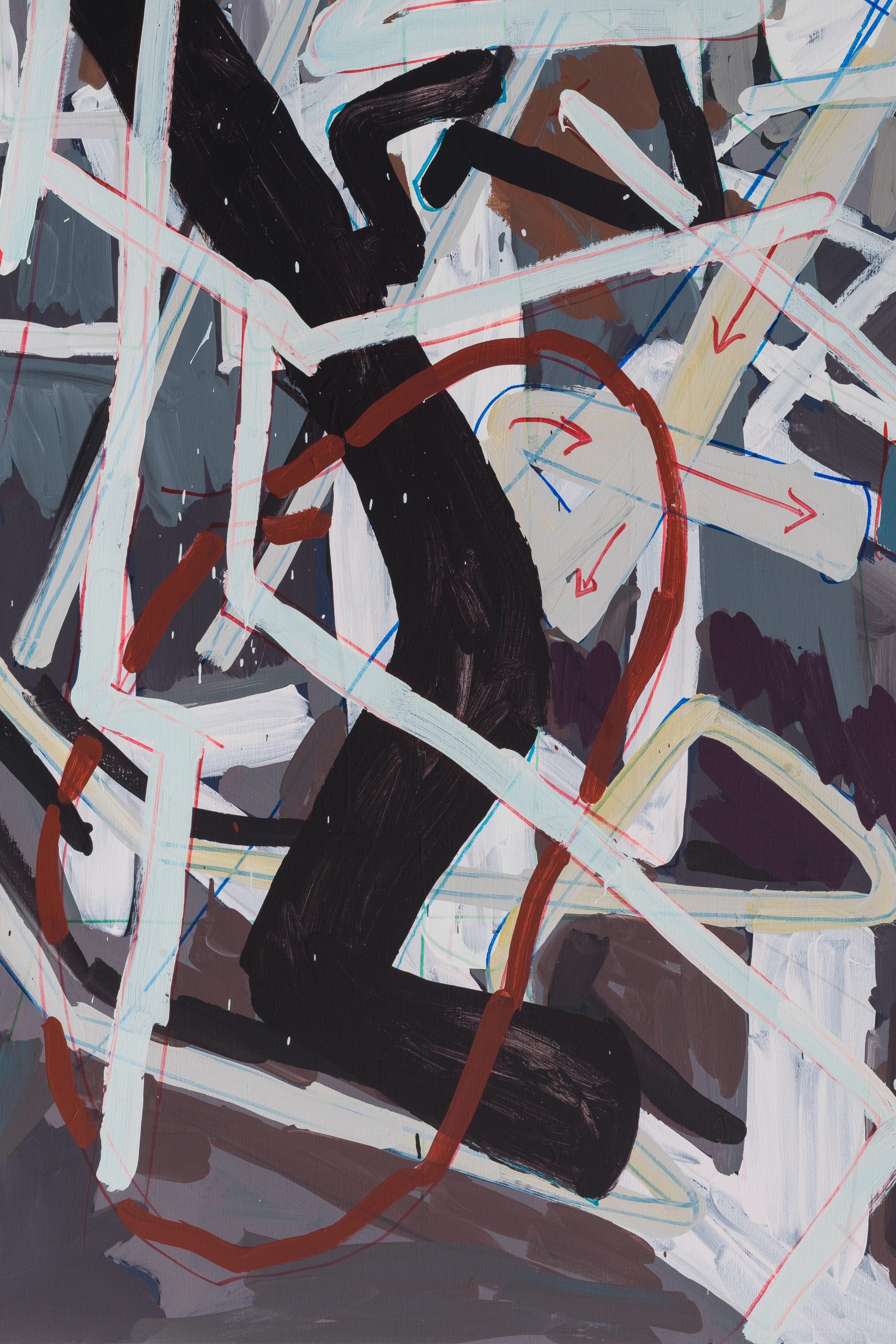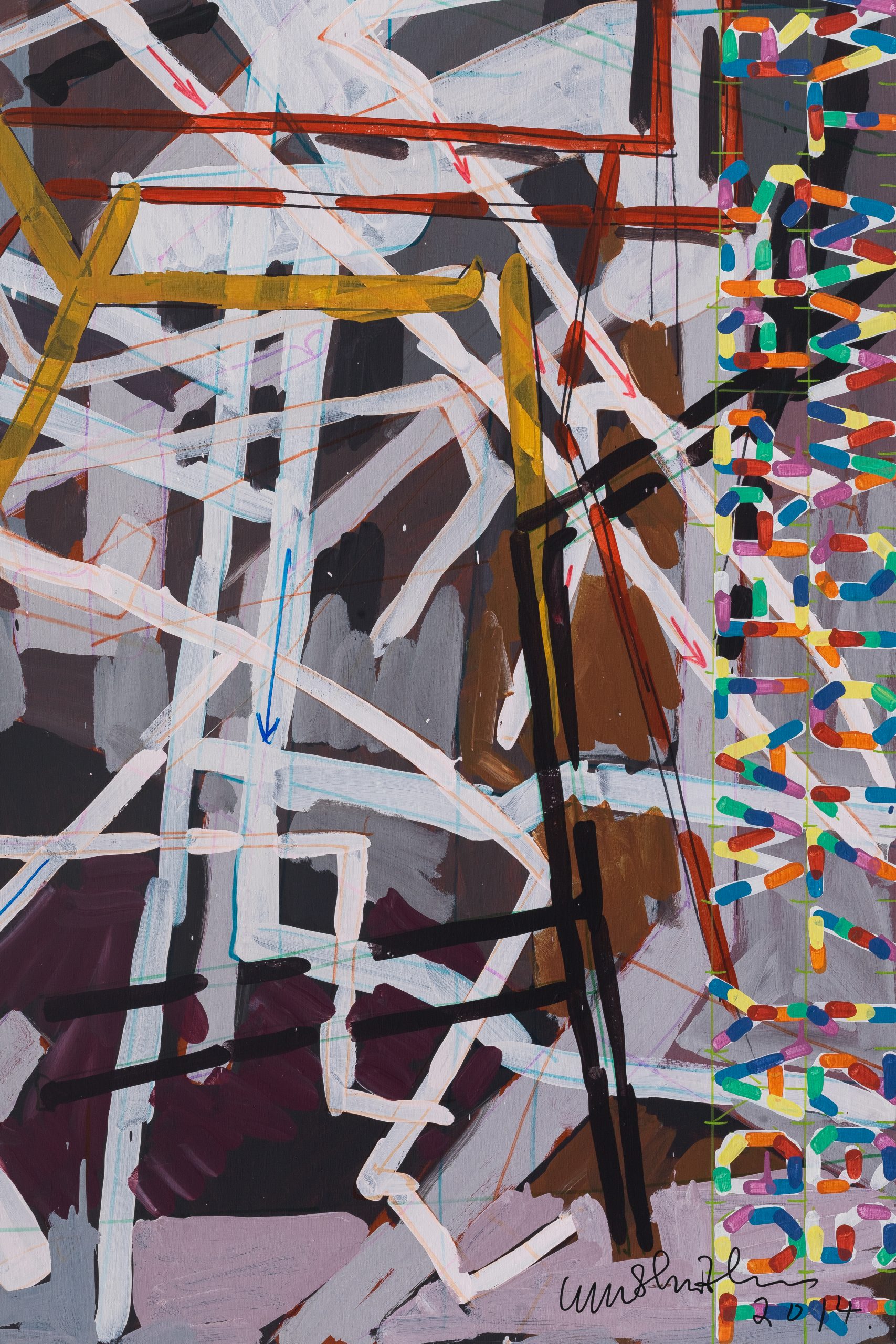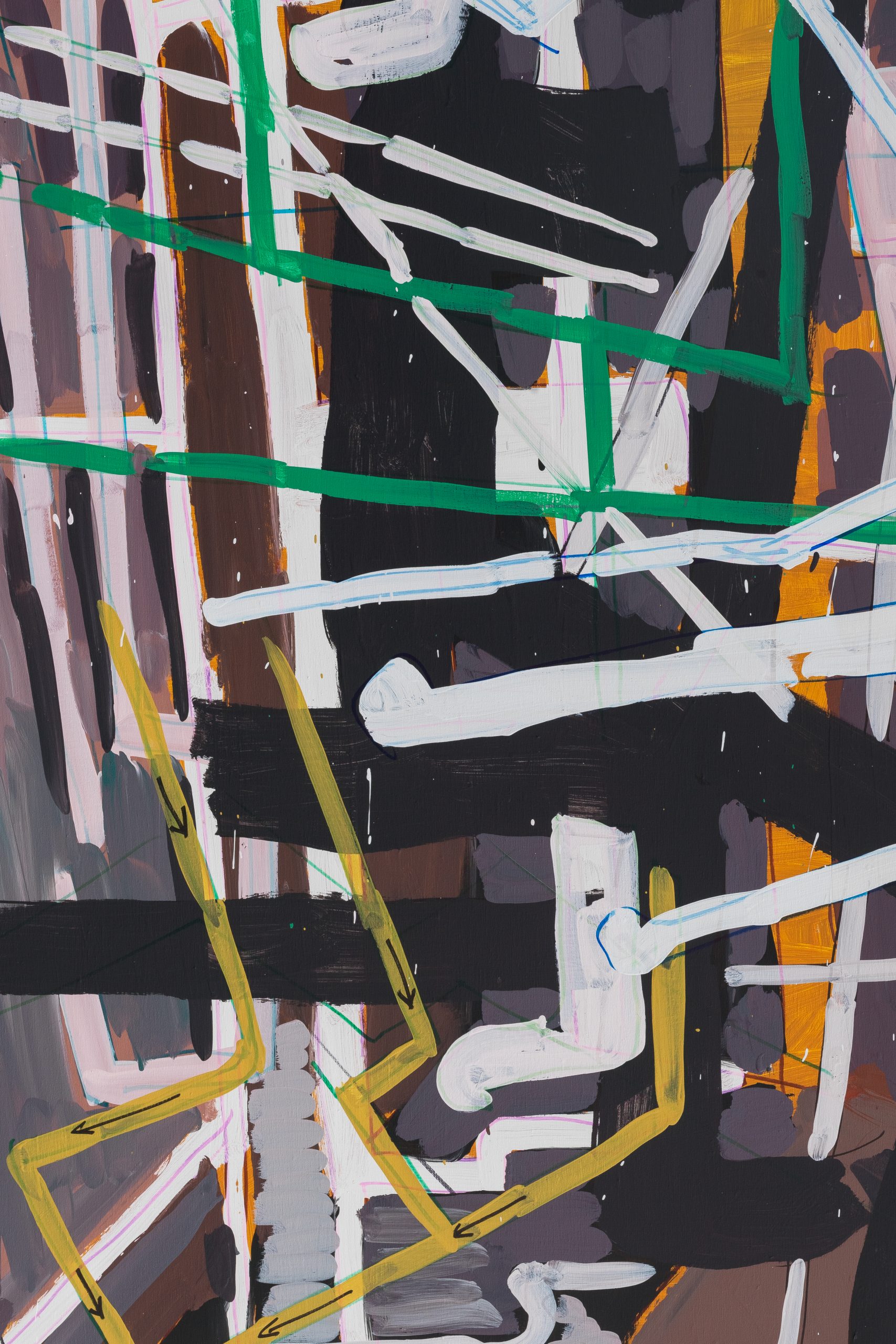Wu Shanzhuan: Everything Starts from Today No Water (I)
Duration: 8 April 12:00 AM - 7 MAY 11:59 AM (CST), 2023
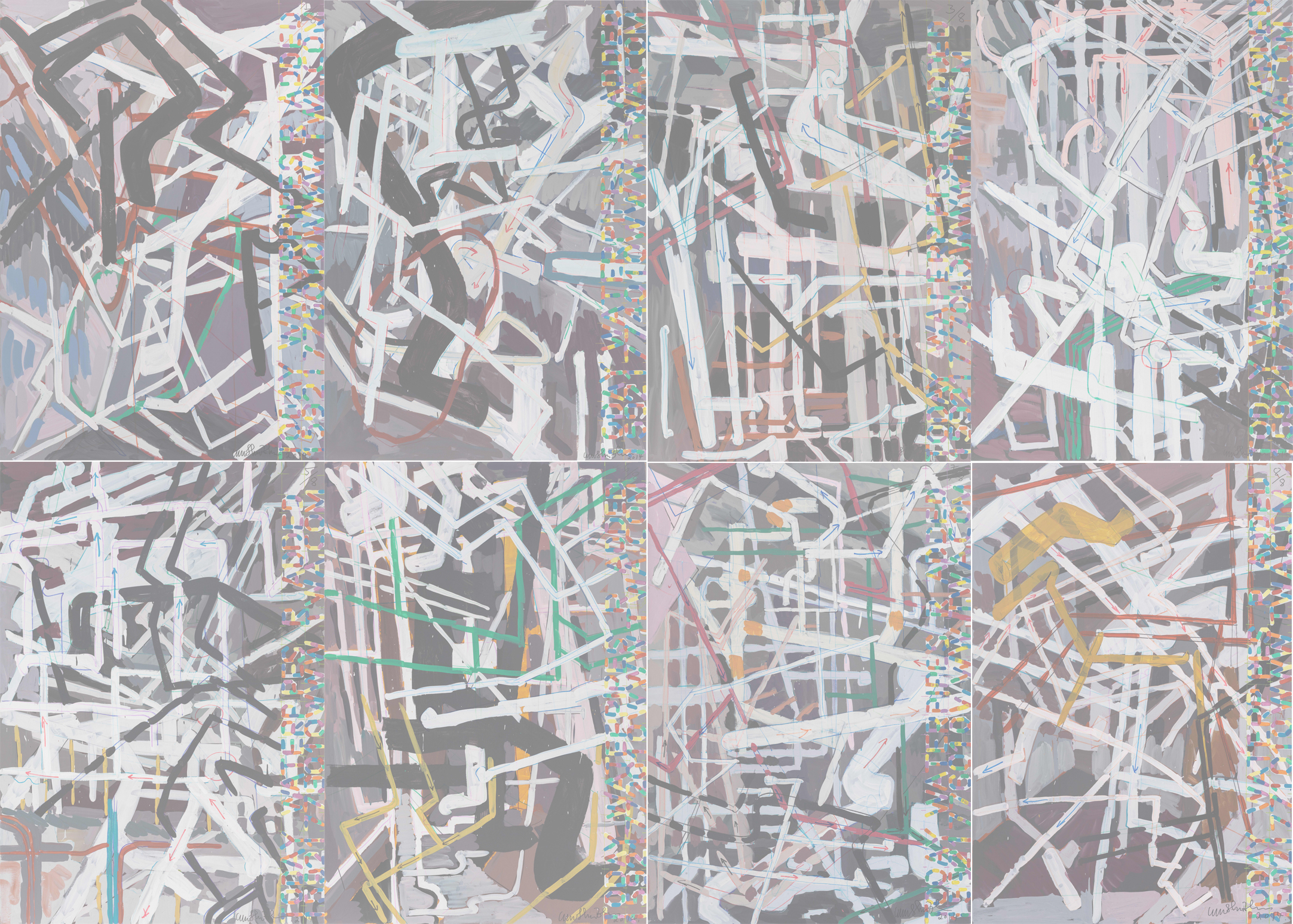
Why is the book Today No Water not a diary?
Because it is similar to a child that has the habit to save money, when it gets some from his or her parents and keeps it in a piggy-bank made from clay. If there is no money at all, nothing can be put into the piggy-bank. It's alright anyway, what gets into the pig is called money. Inflation does not matter, until the child reaches his or her aim: Function after vision -- Today No Water.
I am standing on an overpass, the cars that come from the direction that I face do become bigger and bigger, before they pass me. The cars coming from the opposite direction do become smaller and smaller. After they passed me, or whomever they pass, wherever they come from, they always will become smaller. Of course, this is based on -- Please don't move. I am thinking therefore, I am faraway from my surroundings.
Religion starts from what can be described clearly, and leads to what is hard to describe.
Knowledge starts from what can not be described clearly and leads to what can be described very clearly. However, both are based on a certain scope -- Please don't move
The story of knowledge and religion. In both, almost everything has already been described: Right or false, and semi-right or semi-false, that is no issue for the "what" itself Religion and knowledge share the problem: The only difference is, that the "what" itself when viewed from the religious point (towards the focal point) has a mirrored appearance of the "what" that is viewed from the knowledge point (i.e., from the focal point).
Now we come to the contemporary time, which is obvious, if the knowledge is already there before the "what":
adj = adjective, adv = adverb, aux = auxiliary verb, (c) = countable noun, conj = conjunction, e.g. = for example, i.e. = in other words, n = noun, (P) = proprietary name, pl = plural, pp = past participle, prep = preposition, pres part = present participle, pron = pronoun, pt = past tense, rel pron = relative pronoun, sb = somebody, sing = singular, sth = something, (U) = uncountable noun,
vi = verb intransitive, vt = verb transitive…
As the "what" was already there before the knowledge, “what” already was there, was used. There was no example for us. That is why we still don't know "when" the focal point rose like the sun on the horizon of the cross.
"When" the relation between the things and the knowledge was ambivalent, people selected from what was them already. In "that light", for example, a fish was described. That is the reason why we know that this was the beginning of religion. And this could be the reason why nowadays (in the times of knowledge) the price of fish has increased and the number of species available in the fish shop decreases, until there is only one kind of fish left. At that time, the dictatorship of knowledge will come true.
As we have knowledge before the "what", we do have what is there already. It is all described. Every individual knows, for an example, the supermarket. But things (the "what"), were (was) always there before knowledge, for the whole of mankind. Unfortunately we can't make an example here, because as soon as it is put to paper, the knowledge will be there before the thing.
--Excerpted from Wu Shanzhuan's Today No Water
Today More Waterpipes are Needed details
About Wu Shanzhuan
Wu Shanzhuan (b. 1960, China). One of the key figures of the '85 New Wave Art Movement in China, Wu Shanzhuan's practice defies use of conventional visual art terms such as "watch", "stare" and "experience" to engage with. Instead, pulling together street smartness, intellectual experimentation and the spirit of the absurd in contemporary art, Wu Shanzhuan and his collaborator Inga Svala Thorsdottir draw you into a world where "read" becomes the key term. They are not creators of visual spectacles, but rather overthrowers and discoverers of truths and propositions, as well as counterfeiters of ideology and interpreters of everyday theology.
Wu Shanzhuan defines himself as criminal, intermediary, tourist and labor. The works Wu Shanzhuan creates are not the granted artworks but rather "Wu's Things". From the large number of "Wu's Things" made in the early 1990s, we see a desire for full opening and "transcending the boundaries" and his obsession with mathematics and logic which brings a strange sense of truth to his works. For a society dictated by a variety of faiths and customs, this is an "adulterated" truth. Wu never tires of quoting from Sartre: "People are a bundle of useless passion". The use for his useless passion is to find "useless truths". For more than 20 years, Wu Shanzhuan has used the forumulas "pseudo-words", "thing's right(s)", "parthenogenesis", "secondhand water", "tourist information", "perfect bracket" and "bird before peace", all of which are "useless truths", to weave his personal ideology. This ideology constitutes a profound critique to the system of concepts and experiences that we are accustomed to.
In the era when conceptual art generally faces a rethink, the works attest a vibrancy of concept and the power of thoughts. It is a rich collection of intriguing humor and sharp wit, spontaneous anti-metaphysical actions, insights into everyday politics, sensitivity to invisible workings of power systems and adherence to the fundamental state of democracy.
Wu Shanzhuan: Everything starts from Today No Water (I)
Duration: 8 April 12:00 AM
- 7 MAY 11:59 AM (CST), 2023

Why is the book Today No Water not a diary?
Because it is similar to a child that has the habit to save money, when it gets some from his or her parents and keeps it in a piggy-bank made from clay. If there is no money at all, nothing can be put into the piggy-bank. It's alright anyway, what gets into the pig is called money. Inflation does not matter, until the child reaches his or her aim: Function after vision -- Today No Water.
I am standing on an overpass, the cars that come from the direction that I face do become bigger and bigger, before they pass me. The cars coming from the opposite direction do become smaller and smaller. After they passed me, or whomever they pass, wherever they come from, they always will become smaller. Of course, this is based on -- Please don't move. I am thinking therefore, I am faraway from my surroundings.
Religion starts from what can be described clearly, and leads to what is hard to describe.
Knowledge starts from what can not be described clearly and leads to what can be described very clearly. However, both are based on a certain scope -- Please don't move
The story of knowledge and religion. In both, almost everything has already been described: Right or false, and semi-right or semi-false, that is no issue for the "what" itself Religion and knowledge share the problem: The only difference is, that the "what" itself when viewed from the religious point (towards the focal point) has a mirrored appearance of the "what" that is viewed from the knowledge point (i.e., from the focal point).
Now we come to the contemporary time, which is obvious, if the knowledge is already there before the "what":
adj = adjective, adv = adverb, aux = auxiliary verb, (c) = countable noun, conj = conjunction, e.g. = for example, i.e. = in other words, n = noun, (P) = proprietary name, pl = plural, pp = past participle, prep = preposition, pres part = present participle, pron = pronoun, pt = past tense, rel pron = relative pronoun, sb = somebody, sing = singular, sth = something, (U) = uncountable noun,
vi = verb intransitive, vt = verb transitive…
As the "what" was already there before the knowledge, “what” already was there, was used. There was no example for us. That is why we still don't know "when" the focal point rose like the sun on the horizon of the cross.
"When" the relation between the things and the knowledge was ambivalent, people selected from what was them already. In "that light", for example, a fish was described. That is the reason why we know that this was the beginning of religion. And this could be the reason why nowadays (in the times of knowledge) the price of fish has increased and the number of species available in the fish shop decreases, until there is only one kind of fish left. At that time, the dictatorship of knowledge will come true.
As we have knowledge before the "what", we do have what is there already. It is all described. Every individual knows, for an example, the supermarket. But things (the "what"), were (was) always there before knowledge, for the whole of mankind. Unfortunately we can't make an example here, because as soon as it is put to paper, the knowledge will be there before the thing.
--Excerpted from Wu Shanzhuan's Today No Water
Today More Waterpipes are Needed details
About Wu Shanzhuan
Wu Shanzhuan (b. 1960, China). One of the key figures of the '85 New Wave Art Movement in China, Wu Shanzhuan's practice defies use of conventional visual art terms such as "watch", "stare" and "experience" to engage with. Instead, pulling together street smartness, intellectual experimentation and the spirit of the absurd in contemporary art, Wu Shanzhuan and his collaborator Inga Svala Thorsdottir draw you into a world where "read" becomes the key term. They are not creators of visual spectacles, but rather overthrowers and discoverers of truths and propositions, as well as counterfeiters of ideology and interpreters of everyday theology.
Wu Shanzhuan defines himself as criminal, intermediary, tourist and labor. The works Wu Shanzhuan creates are not the granted artworks but rather "Wu's Things". From the large number of "Wu's Things" made in the early 1990s, we see a desire for full opening and "transcending the boundaries" and his obsession with mathematics and logic which brings a strange sense of truth to his works. For a society dictated by a variety of faiths and customs, this is an "adulterated" truth. Wu never tires of quoting from Sartre: "People are a bundle of useless passion". The use for his useless passion is to find "useless truths". For more than 20 years, Wu Shanzhuan has used the forumulas "pseudo-words", "thing's right(s)", "parthenogenesis", "secondhand water", "tourist information", "perfect bracket" and "bird before peace", all of which are "useless truths", to weave his personal ideology. This ideology constitutes a profound critique to the system of concepts and experiences that we are accustomed to.
In the era when conceptual art generally faces a rethink, the works attest a vibrancy of concept and the power of thoughts. It is a rich collection of intriguing humor and sharp wit, spontaneous anti-metaphysical actions, insights into everyday politics, sensitivity to invisible workings of power systems and adherence to the fundamental state of democracy.

